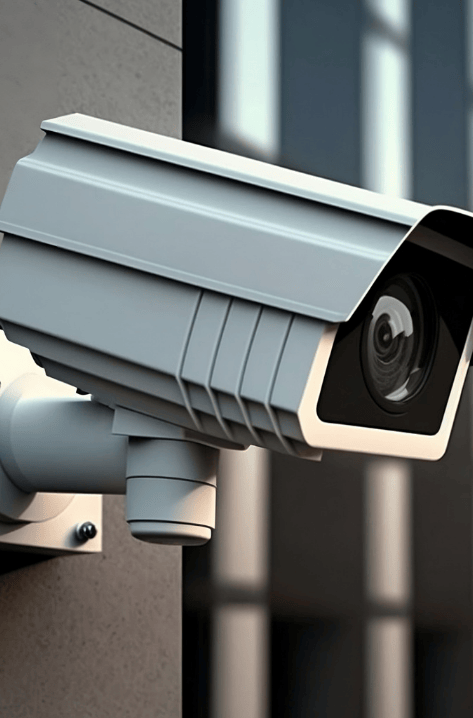The Turkish Competition Board Once Again Emphasizes Its Zero Tolerance Attitude Towards Digital Data Wiping During On-Site Inspections
15.12.2021
The Turkish Competition Board ("Board") has re-emphasized its zero-tolerance policy on digital data wiping with the recently published Procter and Gamble Tüketim Malları Sanayi A.Ş. ("P&G") investigation decision concerning the obstruction of its on-site inspection. You can read the decision here. (Available only in Turkish)
The investigation in question was executed in order to determine whether P&G was in breach of Article 4 of the Law on the Protection of Competition No. 4054 ("Law"). In this context, the Board conducted an on-site inspection where they found P&G had obstructed/hindered the inspection on the grounds of digital data wiping and faced an administrative fine pursuant to Article 16/1-d of the Law.
Following the Commencement of an Inspection, No Information Shall Be Deleted, Regardless of Its Context
The decision indicates that Board officials informed P&G personnel in detail about the inspection procedure: “It has been made clear by the Board officials that as of this moment, by no means an e-mail or a document of any type shall be deleted from the computers, e-mails or any other data storage devices and that on the contrary case, this act can be detected and regardless of the context of the deleted content this act will be regarded as obstruction of the on-site inspection.”
However, despite this briefing, the Board’s expert professionals detected the deletion of certain group chats on WhatsApp following the commencement of the inspection. Although the company personnel responsible for the digital data wiping argued that none of the deleted WhatsApp group conversations were related to business and the reason for deletion was privacy concerns due to the political and obscene content of the messages, the Board found this reasoning invalid.
The Board underlined in its decision that despite the company personnel’s argument of privacy concerns, the log history showed that some of the deleted groups were titled “Sales”, “The Team”, “Vicks Sales”, and further to that, group members consisted of the personnel.
In addition, the relevant personnel permanently wiped the conversations, leaving the Board unable to determine the context of the communications. Since the Board had informed company personnel that deletion of any kind of messages, regardless of their content, would constitute an obstruction to the on-site inspection, the Board considered the deleted messages as if they consisted of competitive elements and decided that the on-site inspection had been obstructed.
The Board evaluated the P&G case in accordance with Article 15 of the Law, titled "On-site Inspection" below.
“In carrying out the duties assigned to it by this Act, the Board may perform examinations at undertakings and associations of undertakings in cases it deems necessary. To this end, it is entitled to:
a) Examine the books, all types of data and documents of undertakings and associations of undertakings kept on physical or electronic media and in information systems, and take copies and physical samples thereof,
b) Request written or oral statement on particular issues,
c) Perform on-site examination of any assets of undertakings.
The examination is performed by experts employed at the disposal of the Board. While going for an examination, experts carry with them an authorization certificate showing the subject matter and purpose of the examination, and that an administrative fine shall be imposed should incorrect information be provided.
Those concerned are obliged to provide copies of information, documents, books and other instruments requested. In case an on-site inspection is hindered or likely to be hindered, the on-site inspection is performed with the decision of a criminal magistrate.”
As a result, the Board, having taken into account the previous warnings during the on-site inspection, decided that the expert professionals’ access to possible evidence and findings that they could obtain during the inspection was hindered.
Consequently, the Board imposed administrative fines amounting to 0.5 percent of P&G’s 2020 annual gross revenue for violating Article 16-1/d of the Law.
Takeaways from Previous Board Decisions of a Similar Nature
In the P&G decision, the Board referred to its Kaynak Tekniği San. ve Tic. A.Ş. decision dated 26 December 2019 and numbered 19-46/793-346 and its Coşkunlar Hazır Beton İnş. Taah. San. ve Tic. A.Ş. decision dated 13 March 2019 and numbered 19-12/146-67 where enterprises had administrative fines imposed upon them on the grounds that inspections were obstructed due to a deletion of a document by any nature.
Similar to the P&G case in question, in the decisions referred to by the Board the personnel of the enterprises had deleted a number of e-mails during on-site inspections and as a result, the Board imposed administrative fines on the enterprises under Article 16/1-d of the Law.
Furthermore, the Board highlighted that a decision of a similar nature was further appealed and approved by the Council of State (e.g. Decision of the 13th Chamber of the Council of State E: 2008/5890 and K: 2013/847)
As a result, legal & compliance officers and/or competition experts of companies should ensure that their colleagues are properly informed that the deletion of digital communication may be considered as an infringement, regardless of the content of the deleted items.
Conclusion
This decision and previous Board decisions demonstrate the adoption of a strict zero-tolerance policy towards digital data wiping. Deletion or alteration of a document subsequent to an inspection, regardless of its content, is likely to be regarded as data wiping and, accordingly, will constitute a breach of Article 15 of the Law. Moreover, a possible appeal will probably result in the approval of the Board decision, as previous judicial decisions have demonstrated.
Therefore, companies subject to such inspections should be overcautious and should prevent their personnel from deleting any type of message and/or email, etc. during an inspection, whether it concerns private life or business life.
-
Kemal Altuğ Özgün
Managing Partner

-
Sezi Atmaca
Mid-Level Associate




